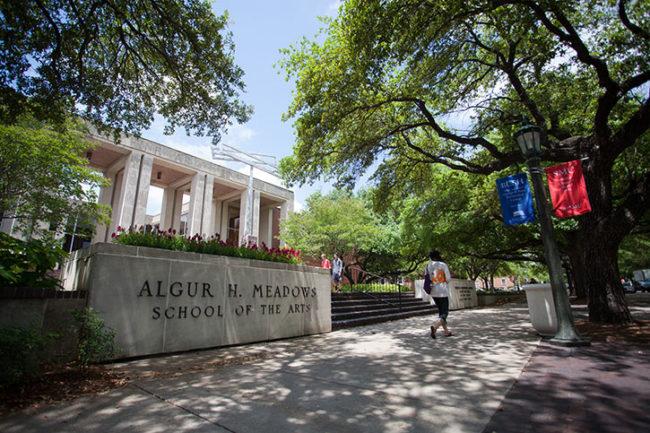Starting on March 23, SMU professors will be transitioning their classes online due to the university’s decision to temporarily halt on-campus classes amid coronavirus concerns. While professors find creative ways to adapt their curriculums online with digital platforms and tools, performance-based departments, such as Theatre, Dance, and Music, face unique challenges with this change.
Although sophomore Grace Inthathirath understands why the decision was made, she studies theatre and is nervous about how her classes will look for the next few weeks.
“There will just be no way for performing artists to get work done,” Inthathirath said. “It’s infuriating.”
She is specifically worried about the Rep Theatre performances, which consist of three shows that are being shown in the same theatre and are directed by three chosen seniors.
“If we are not able to come back after spring break, we are afraid that there will be no more Rep,” Inthathirath said. “Meaning that the three shows that have been in the works will not go up.”
Dr. Gretchen Smith, the Head of the Division of Theatre, understands that some classes will work better with changes than others. Smith will be teaching her playwriting class with digital tools like Zoom, Canvas, and Box. She also anticipates obstacles in the upcoming weeks.
“Our labs — our MainStage season, for example — has to come to a complete halt during the shutdown,” Smith said. “This means rehearsals and performances can’t happen during these two weeks. We’ll also have to consider the implications of the 50+ gatherings rule post-closing, given the size of our theatre and production crews.”
Smith said that each professor is creating their own protocol for their classes and that this is a time for ingenuity, flexibility, and innovation to deliver curriculum effectively.
Theatre is not the only department facing these issues. Senior Flute Performance major Annabelle Kim said that many classes and degree-required recitals have been simply cancelled for the next few weeks.
“As a performance major, the majority of what we do and learn is related to having lessons and giving performances of solo, chamber, and large ensemble music,” Kim said. “A lot of these performances in the form of recitals and concerts can’t happen with online classes. Any ensemble larger than 9 people, which includes band, orchestra, and opera, is cancelled because you can’t rehearse a 60 piece orchestra online.”
Kim says that music classes are usually taken exclusively by first and second year music majors, and that everything after that is lessons taken with professors. She said that although these can technically be moved to Skype, the sound quality and instruction are significantly hindered because of audio distortion.
“My flute professor is moving to Skype lessons,” Kim said. “Although, because it’s just one-on-one lessons, I may ask for my lessons at her home or on campus because Meadows will still be open.”
Kim’s orchestra and band classes, as well as her repertoire class, have been cancelled.
The Division of Dance is being hit with its own set of challenges. Christopher Dolder, the Chair of Dance, sent out an email following the decision. In the email, he requested that students have a space the size of a yoga mat or larger if possible to learn in.
“Obviously the size of movement expectations will be diminished but in no way do we expect a diminishment in the intensity of learning and self-discovery during this unorthodox learning period,” Dolder said in this email.
Junior Kiera Mays finds this frustrating and does not know if online classes will be successful.
“In regards to online dance classes, I think that there was a lack of thought from the president and his constituents as to how any arts class would be taught online,” Mays said. “The idea at the moment is to confine teaching to the space of a yoga mat, but pointe class especially is something that is not to be done on carpet, wooden floors, etc. Stamina and endurance of every dancer will plummet.”
Senior dance majors have to complete a capstone performance for their degree. With this performance, seniors must choreograph a work, choose costumes, and collaborate with a lighting designer and musicians.
“The creation process is due to start after spring break, and we have been instructed that our rehearsals will be conducted via Zoom which truly is damn near impossible,” Mays said.
Dolder said that all seniors will graduate on time and hopes the students and faculty will put forth the effort to take on the challenge during these unorthodox learning circumstances.
“Cancelling in-person is the right thing to do,” Dolder said. “We are artists and as such we will institute creative ways of teaching a physicalized art form, via virtual formats, in the best way possible. The dance students are taking everything in stride and look forward to collaborating on a very novel pedagogy after spring break and into the foreseeable future.”





















